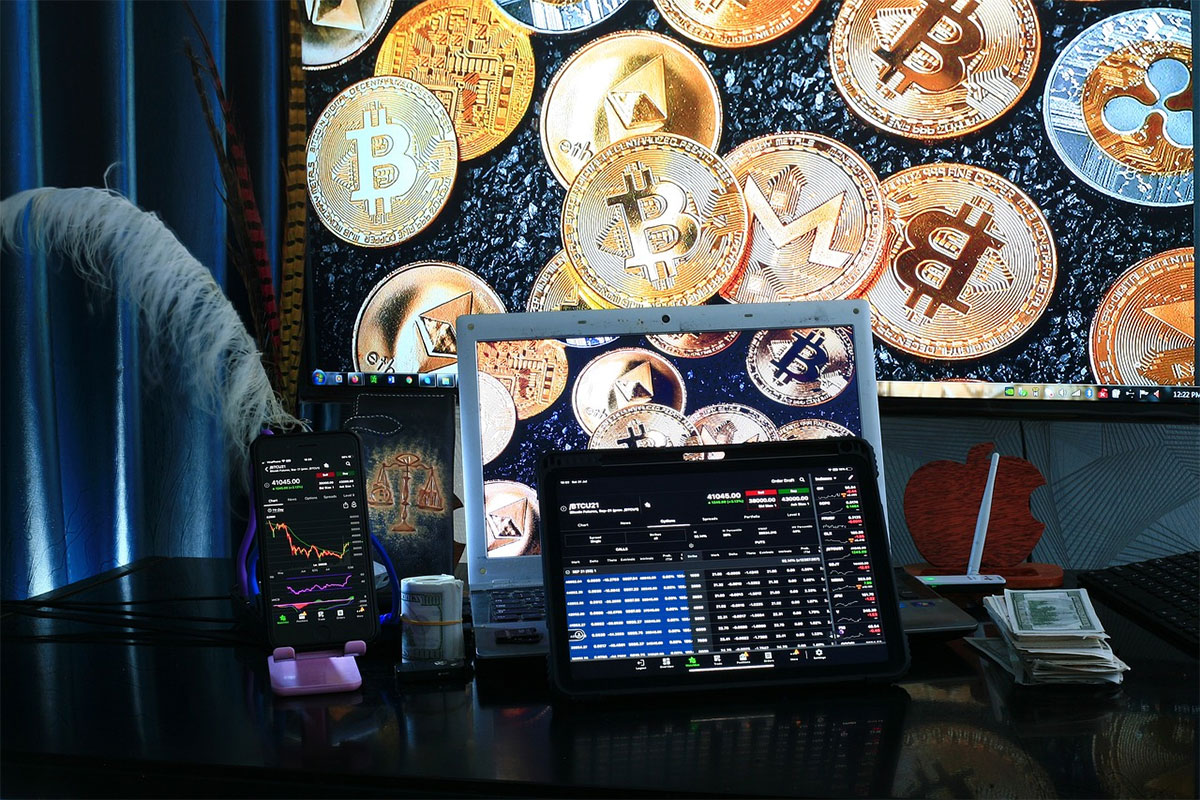Navigating the challenging political landscape, investors have found solace in the world of cryptocurrencies, granting them the freedom to access their financial resources anytime, anywhere, using the very devices that rarely leave their grasp—mobile phones. However, recent years have shed light on the vulnerabilities within the cryptocurrency industry, exposing its firewalls to the relentless onslaught of cyber-attacks and showing yet nobody is bullet-proof in the tech era. In this article, we will look at the potentially risky nature of blockchain and present various protection solutions to help you safeguard your digital assets.

One fundamental step to protect your crypto investments is to utilize secure wallets. Experts unanimously agree that choosing a reputable hardware wallet, such as Ledger or Trezor, provides a solution to this issue, but it is crucial to securely store and remember your password.
“Any crypto wallet that won’t give you your private keys should be avoided at all costs.” Elon Musk, 2021, via Twitter
These hardware wallets store your private keys offline, significantly reducing the risk of online attacks. Recent examples have proven the vulnerability of storing cryptocurrencies on centralized platforms. FTX’s CEO recently revealed that approximately $323 million was hacked from its international exchange, and an additional $90 million was stolen from its US platform since the firm filed for bankruptcy. This staggering incident underscored the importance of transferring funds to secure hardware wallets to mitigate such risks effectively and prompted many users to search for new storage methods.
In addition to using secure wallets, implementing strong security measures is an absolute. After Europol said 10 people have been arrested for SIM-swap attacks that stole over $100 million in cryptocurrency from celebrities, cybersecurity specialists emphasized the significance of enabling two-factor authentication (2FA) on all crypto accounts. While it may seem burdensome and time-consuming, employing this method is vital for ensuring the safety of your investments. By adding an extra layer of security, 2FA helps safeguard against unauthorized access. Another thing to keep in mind is to create long and complex passwords and update them regularly. Ditch the old habit of writing them down in a corner and make sure your passwords are accessible but in a safe place.
Watch Out for Scams!
Remaining informed about scams and phishing attempts is equally vital in safeguarding your crypto investments. Scammers often employ various tactics to deceive crypto investors. You can be on the safe side by double-checking the URLs of crypto platforms and exercise caution regarding unsolicited emails or messages requesting private keys or personal information. Numerous cases of phishing attempts have been reported, where scammers impersonate legitimate crypto platforms or send fraudulent emails seeking sensitive information.
Stay vigilant and remain aware of potential scammers who may try to deceive you.
Trust in your own knowledge and experience to distinguish between what is genuine and what is fraudulent. The key to feeling secure lies in stepping out of obscurity and gaining a thorough understanding of your actions. Take the initiative to educate yourself and analyze the market, rather than relying solely on others for guidance or advice. Fundamental analysis, which involves monitoring market trends and events, along with technical analysis, which focuses on chart patterns and indicators, serve as essential tools for building a solid foundation of knowledge. By employing these strategies, you can enhance your understanding of the market and feel safe about your investments.
Choosing the Right Storage
When it comes to safeguarding your crypto investments, choosing the right storage solution is of utmost importance. You have two primary options: hot wallets and cold wallets.
Hot wallets are software-based wallets that are connected to the internet, providing easy access for daily transactions. They can be installed on your computer or mobile device, offering convenience and quick availability of your funds. However, it’s essential to bear in mind that hot wallets are more vulnerable to online threats like hacking and malware attacks.
On the other hand, cold wallets are offline devices designed specifically for storing cryptocurrencies. They are often physical devices such as USB sticks or hardware wallets. By keeping your private keys and digital assets offline, cold wallets significantly reduce the risk of online vulnerabilities. This makes them a highly secure option, especially for long-term storage of substantial crypto holdings.
The choice between hot and cold wallets depends on your specific needs. Hot wallets are suitable for everyday transactions and smaller amounts of crypto, prioritizing convenience. In contrast, cold wallets are recommended for storing larger sums of cryptocurrencies over an extended period, emphasizing security. Either way, look for reputable wallets with positive reviews and a strong track record, ensuring they have robust security measures in place to protect your assets from hackers. Moreover, ensure that the wallets you choose are user-friendly, with intuitive interfaces that simplify the complex nature of cryptocurrencies. Compatibility between your cryptocurrency wallets is also crucial, allowing for easy integration and cost-effective management of your digital assets. This enables seamless and secure money transfers too.
Whether you’re investing in popular cryptocurrencies or niche areas like NTFs or luxury watches, safeguarding your investments requires a proactive approach and a thorough understanding of effective security practices. One key aspect is the utilization of secure wallets, particularly reputable hardware wallets, which offer the advantage of offline storage for your private keys. By keeping your keys offline, the risk of online attacks is significantly minimized. Additionally, implementing strong security measures, such as enabling two-factor authentication (2FA) and creating complex passwords, provides an extra layer of protection against unauthorized access. It is equally important to stay informed about scams and phishing attempts in order to recognize and avoid the deceptive tactics employed by scammers. Regularly updating the software and firmware of your crypto wallets is vital to address any vulnerabilities and ensure optimal security. When selecting the right storage solution, consider factors such as reputation, security measures, backup facilities, compatibility, and user-friendliness. Remember to adapt your security measures as the crypto landscape continues to evolve. By prioritizing security, you can confidently navigate the world of cryptocurrencies and safeguard your valuable investments. Stay informed and stay secure!









